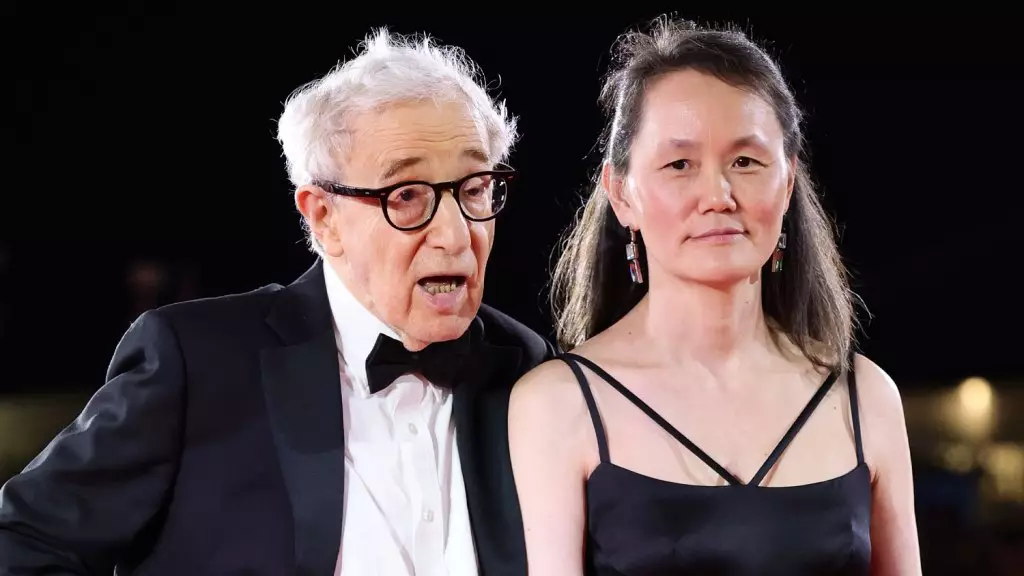In a recent interview at the Venice Film Festival, legendary filmmaker Woody Allen delved into hot-button topics such as cancel culture and the #MeToo movement. With the premiere of his 50th and potentially final film, Coup de Chance, Allen found himself not only reflecting on his own career but also addressing the controversies surrounding his personal life. While some have accused him of inappropriate behavior, Allen adamantly asserts that he has never received a single complaint from any of the actresses he has worked with. Let us explore Allen’s perspective on cancel culture and its impact on his life and work.
Allen begins by referencing his statement about being a potential “poster boy” for the #MeToo movement. He recalls the excessive excitement it generated, highlighting the fact that he has always provided substantial roles for women in his films. He asserts that he has never mistreated anyone or faced allegations of harassment. Allen prides himself on maintaining gender equality in his projects, ensuring that women are paid the same as men. Despite his assertions, Allen recognizes that the cancel culture encompasses the current cultural climate and dismisses its significance, noting that his work routine has remained unchanged over the years.
As Allen walked the red carpet at the premiere of his latest film, Coup de Chance, a group of approximately 20 protestors assembled outside the venue. Their chants of “no rape culture” and “a rapist is not a sick man, he is the healthy son of patriarchy” made their stance crystal clear. In addition to these protests, banners with slogans such as “Island of rapists” and “No Golden Lion for predators” were displayed throughout the festival, targeting both Allen and Roman Polanski. Allen, despite the controversy surrounding his reputation, received a standing ovation after the screening of Coup de Chance.
When asked about his stance on the MeToo movement, Allen expresses nuanced opinions. He acknowledges that any movement benefiting women is positive, but cautions against instances where its implementation seems excessive or extreme. Allen believes that the movement should focus on genuine feminist issues rather than amplifying situations that most people would not view as offensive or unfair to women. It is clear that he supports the empowerment of women and acknowledges the positive impact the MeToo movement has had in certain contexts.
Woody Allen’s candid interview sheds light on a film industry currently grappling with the consequences of cancel culture. While he remains plagued by accusations and protests, Allen maintains that his professional conduct has never warranted any complaints from the actresses he has collaborated with throughout his extensive career. As controversy continues to surround the filmmaker and his work, it becomes crucial for society to engage in dialogues that critically evaluate cancel culture, its implications, and the complexities it presents.

